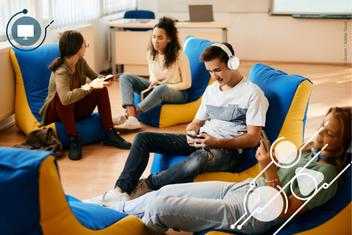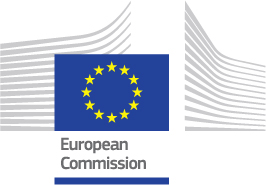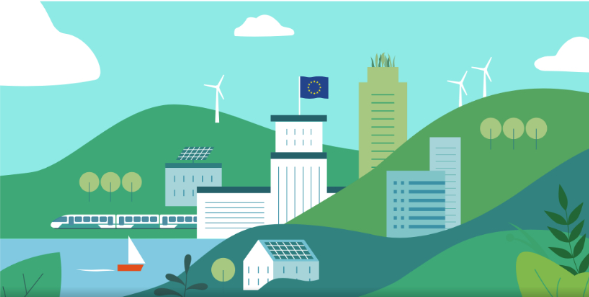Innovative Learning Environments: From Theory to Practice
Деталі курсу
Innovative learning environments (ILEs) are educational ecosystems that link space and technology with active learning approaches to develop 21st century skills and enhance students’ engagement. Through this course educators will rethink the role of pedagogy, digital technology, and space design in classrooms in order to transform their learning spaces into flexible, comfortable, and technology-enriched environments through active and interdisciplinary learning scenarios.
Duration and workload
Start date: Monday 20 March 2023
End date: Monday 5 April 2023
Duration: 2 weeks and 2 days
Workload: 8-10 hours
This course has concluded but the content remains available for browsing!
- You can access the modules by enrolling in the course
- It is no longer possible to take part in the final activity and receive a certificate of completion
- Please note that user support for this course is no longer provided
Цільова аудиторія
The course targets educators of all school levels and subjects, as well as other in-school staff (e.g., school librarian, career counsellor, etc.), who are interested in expanding their knowledge on the topic of innovative classroom spaces.
Результати навчання
- Reflect on the main characteristics of ILEs
- Examine the principles underlying the design of ILEs
- Explore different learning methodologies associated with ILEs
- Discover examples of learning scenarios for ILEs
- Develop learning scenarios for ILEs and assess those developed by your peers.
Цей контент представлений Європейською комісією. Європейська Комісія є політично незалежною виконавчою структурою Європейського Союзу. Відповідальна за розробку пропозицій щодо нового європейського законодавства та виконує рішення Європейського парламенту та Ради Європейського Союзу.

Розклад
- How this course works
- Module 1: Principles of Innovative Learning Environments (ILEs)
- Module 2: Learning Methodologies for ILEs
- Module 3: Learning Scenarios for ILEs
- Module 4: Final Assessment


